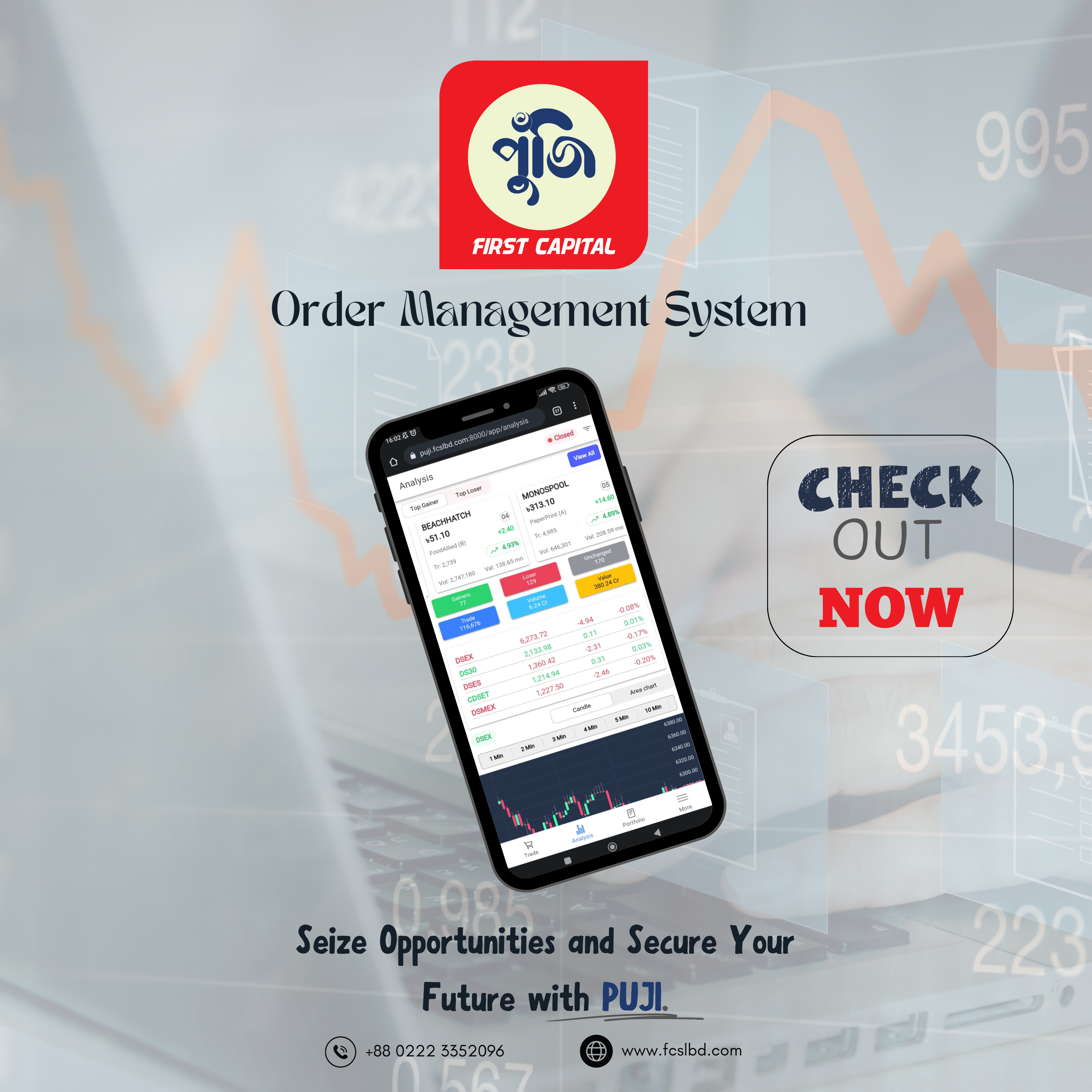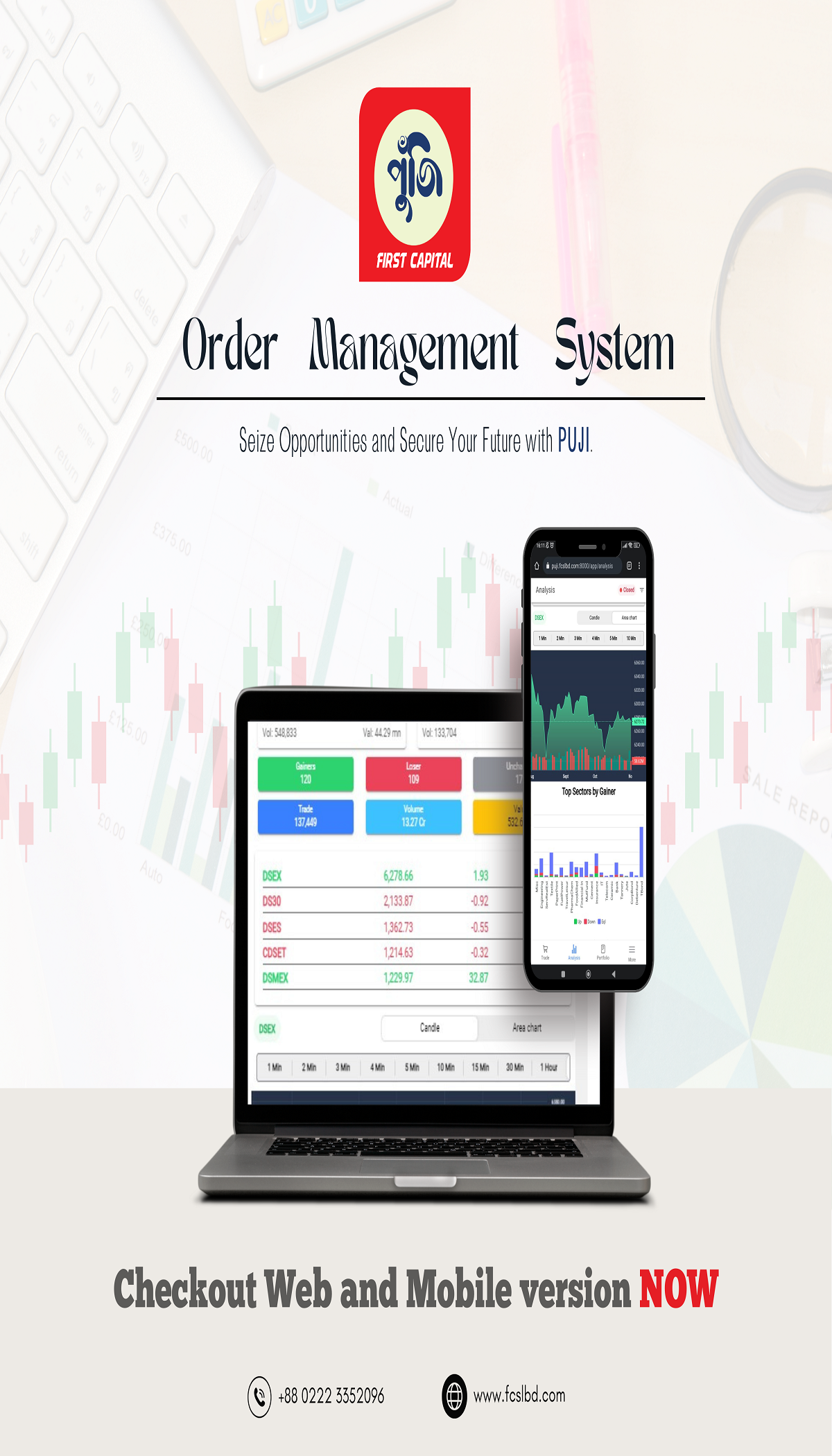As opposed to the main market, the market capitalisation of DSE’s SME platform jumped 55 per cent year-on-year to Tk 24.60 billion in the just-concluded calendar year, driven by an abnormal price surge of Himadri and inclusion of new companies.
Besides, there was no floor price imposed on the SME companies, encouraging investors to trade in the SME stocks, which in turn boosted the market cap of the platform, said Md Sajedul Islam, managing director of Shyamol Equity Management.
On the other hand, stocks worth 60 per cent of the market value had been stagnant in the main market throughout the year, holding it back from expanding. As a result, the market cap of the Dhaka Stock Exchange’s main market increased by a mere 2.6 per cent to Tk 7,808 billion in the year through the end of December 2023.
The market capitalisation refers to the total value of the shares of listed securities at the current market prices. To calculate the market cap, listed companies, mutual funds, corporate bonds, treasury bonds, and debentures are taken into account in the main market.
Himadri’s magical rise and fall
Himadri, which operates six potato cold storages in the northern part of the country, saw the highest jump, 6,415 per cent, on the SME platform in the year to close at Tk 2,300 on Thursday, the last trading day of the year.
The stock was priced at only Tk 35.30 each share in April last year after its listing in the Chittagong Stock Exchange (CSE). It had been transferred to the SME board of the DSE from the OTC (over-the-counter) market at the launching of the platform.
Since then, the stock hopped to hit the circuit breaker on many sessions to peak at Tk 10,000 per share by mid-November last year, becoming the most-expensive stock without any justified reasons. At that price level, the price-to-earnings ratio was 1,600, an absurd number when compared to the market’s P/E ratio of 15.
The exponential increase in the stock price bloated the company’s market worth to Tk 5.25 billion, whereas its paid-up capital was a mere Tk 7.50 million.
Meanwhile, the company declared a 700 per cent stock dividend on October 29 last year to increase the paid-up capital to meet the regulatory requirement of Tk-300 million paid-up capital for small companies.
The company said it would pay stock dividends from its retained earnings, not from capital reserve or revaluation reserve. Its retained earnings stood at Tk 77.67 million as of June 2023.
The Bangladesh Securities and Exchange Commission (BSEC), however, allowed only 250 per cent stock dividends last month.
Following the news, the stock fell at a faster pace than it rose. It tumbled to Tk 2,168 each share from Tk 6,899 a share on a single day after the record date, December 24.
But the volume of trade, meaning the quantity of shares transacted during the rise and fall, had remained absurdly low. In most cases, it took only one share transaction to rise or fall between one circuit breaker to another except for a few trading sessions, raising suspicion of price manipulation.
The price correction dragged down the company’s market value to Tk 1.65 billion at the end of the year, from Tk 5.25 billion in mid-November.
At the year-end price of Tk 2,300, the stock’s P/E ratio stood at 399, still much higher than the market standard.
Three new listing
The SME platform saw three new listings, MK Footwear, Agro Organica, and Al-Madina Pharma, which raised Tk 200 million in total, taking the market cap higher.
All three stocks escalated by 76 per cent to 400 per cent during the year.
MK Footwear, which got listed on the SME board by raising Tk 100 million through a qualified investors offer in 2023, experienced a 400 per cent price surge.
With a face value of Tk 10 each share, the stock closed at Tk 50 at the end of the year. The elevated share price took the company’s market value to Tk 2.35 billion, whereas its paid-up capital was a mere Tk 478.47 million.
Another SME firm, Al-Madina Pharma saw a 307 per cent price jump, leading to an increase in the market value to Tk 848 million, against its paid-up capital of Tk 204 million.
Agro Organica, which got listed last month, saw a 76 per cent price hike within a week after the debut trading on December 20.
The stocks’ rally was rendered by investors’ chasing after quick gains against the backdrop of a nearly non-functional main market, said Mr Islam.
EBL Securities in its yearly analysis forecast that the SME board would have an increased investor participation in 2024 due to the listing of new companies and that some companies, which fulfilled the required criteria, might get transferred to the main board.
Trading on the prime bourse’s SME board began in September 2021 to open up opportunities for small and medium enterprises (SMEs) to raise capital from the primary market. The free-float base index was 1,000 points.
The SME Index shed 51 points in the year to December 28, 2023 to settle at 1,264 points.
source: thefinancialexpress.com.bd
bloated sme market platform




